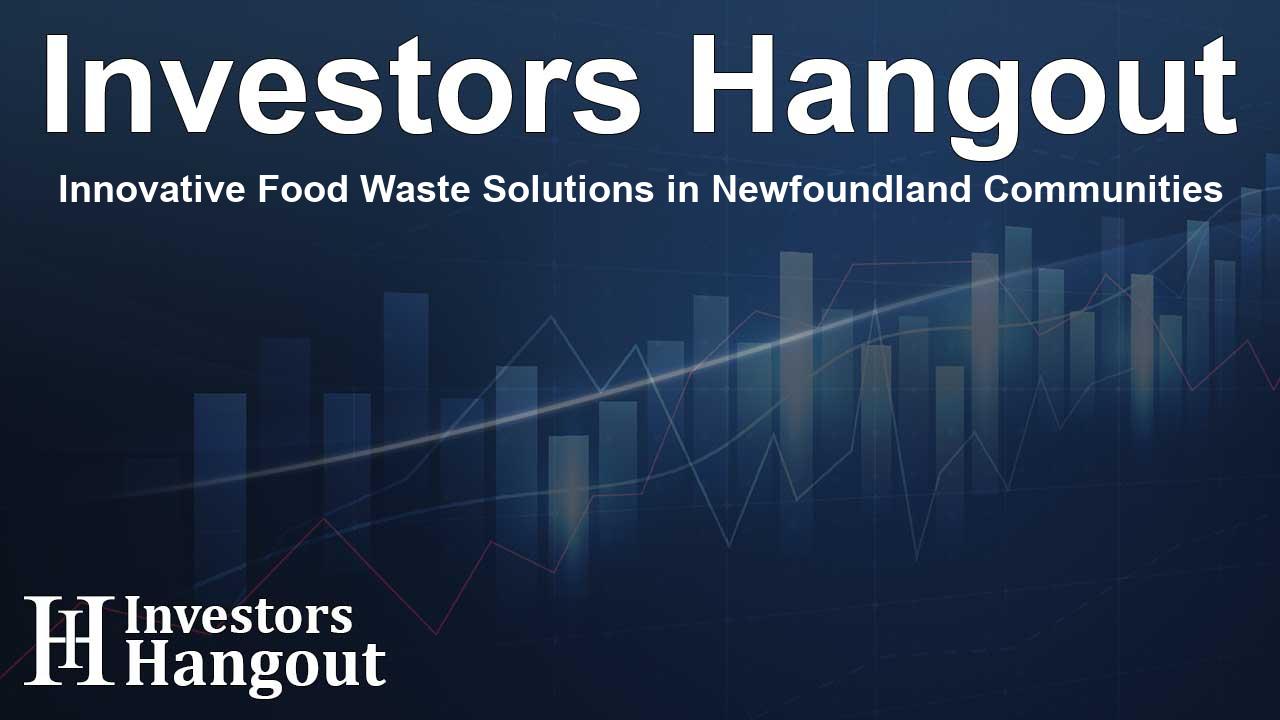Innovative Food Waste Solutions in Newfoundland Communities

Innovative Food Waste Solutions in Newfoundland Communities
Five rural municipalities embrace FoodCycler programs to effectively divert food waste from landfills with in-home technologies.
Food Cycle Science (FCS) is pioneering an innovative partnership with local municipalities to address food waste in Newfoundland. As traditional green bin systems are not available on the island, five select communities have stepped up to implement residential food waste diversion programs. These programs utilize the advanced FoodCycler, a countertop device that converts food scraps into dry, shelf-stable material that can be easily stored or repurposed.
Community-Driven Sustainability Efforts
By introducing these initiatives, rural communities demonstrate how smaller populations can significantly contribute to sustainability efforts. Rather than waiting for expansive infrastructure changes, they have adopted technology to enhance local food waste management. With this focused approach, communities are alleviating pressure on existing landfill systems and mitigating costs associated with waste hauling.
Impact of the FoodCycler Pilot Program
A remarkable example is seen in the town of Gander, where a pilot program involving 200 households showcases the tangible benefits of the FoodCycler. Each participating household is on track to divert approximately 255 kg of food waste annually. This remarkable effort translates to a staggering reduction equivalent to over 4,430 garbage bags kept out of regional landfills, thereby preventing roughly 63.1 metric tonnes of CO?e emissions each year.
The Chief Administrative Officer for the Town of Pasadena, Brian Hudson, shares, "Our FoodCycler pilot program clearly illustrates that giving residents the means to manage their food waste can lead to considerable environmental benefits. Reducing waste taken to landfills minimizes emissions, ultimately fostering a healthier system for waste management."
Building Strong Partnerships
Partnerships with municipalities are essential for advancing effective waste management strategies. Christina Zardo, the Director of Municipal Programs at Food Cycle Science, emphasizes, "We take pride in collaborating with a multitude of communities across Canada to transform the way they handle food waste. Our goal is to shift towards decentralized management solutions that empower each household to contribute directly to waste reduction efforts."
Forward-Looking Solutions for All Communities
As FoodCycler initiatives expand into more communities throughout Newfoundland, even the smallest and most remote areas are gaining access to pragmatic and innovative means of reducing their environmental impact. This shift not only promotes sustainability but also fosters a culture of environmental responsibility among residents.
About Food Cycle Science
Food Cycle Science is a prominent Canadian clean-tech company specializing in the development and distribution of advanced food waste diversion solutions. The company is known for manufacturing the award-winning FoodCycler, which converts food scraps into a beneficial soil amendment, rich in nutrients. Through easy-to-implement solutions, Food Cycle Science actively assists households, local businesses, and municipalities in decreasing waste output and emissions, thereby lowering overall disposal costs.
Frequently Asked Questions
What is the FoodCycler?
The FoodCycler is a kitchen appliance designed to convert food waste into dry, shelf-stable material that can be stored or reused in various ways.
How does the FoodCycler benefit municipalities?
It aids municipalities in reducing landfill waste, cutting hauling costs, and lowering carbon emissions associated with waste disposal.
Which communities are currently using the FoodCycler?
In Newfoundland, five municipalities, including Gander and Pasadena, have adopted the FoodCycler programs to manage local food waste effectively.
How much food waste can an average household divert?
Participating households can divert approximately 255 kg of food waste annually with the FoodCycler.
What are the broader impacts of this initiative?
The initiative promotes sustainability, empowers local residents, and contributes to significant environmental benefits by reducing landfill overload.
About The Author
Contact Thomas Cooper privately here. Or send an email with ATTN: Thomas Cooper as the subject to contact@investorshangout.com.
About Investors Hangout
Investors Hangout is a leading online stock forum for financial discussion and learning, offering a wide range of free tools and resources. It draws in traders of all levels, who exchange market knowledge, investigate trading tactics, and keep an eye on industry developments in real time. Featuring financial articles, stock message boards, quotes, charts, company profiles, and live news updates. Through cooperative learning and a wealth of informational resources, it helps users from novices creating their first portfolios to experts honing their techniques. Join Investors Hangout today: https://investorshangout.com/
The content of this article is based on factual, publicly available information and does not represent legal, financial, or investment advice. Investors Hangout does not offer financial advice, and the author is not a licensed financial advisor. Consult a qualified advisor before making any financial or investment decisions based on this article. This article should not be considered advice to purchase, sell, or hold any securities or other investments. If any of the material provided here is inaccurate, please contact us for corrections.
